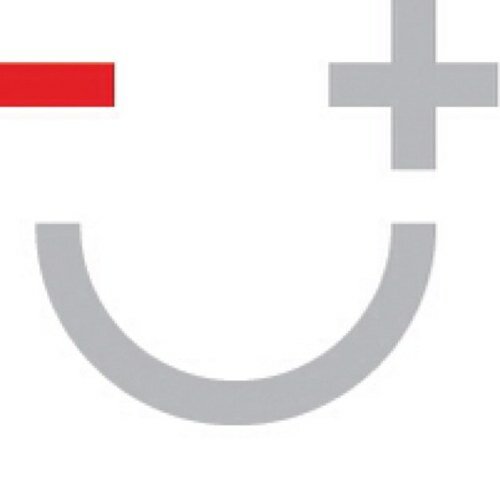 What is A Debt Payment Program?
What is A Debt Payment Program?
A Debt Payment program is a part of the DAS or Debt Arrangement scheme that stops punitive action from creditors and freezes all future interest and charges while you repay your debt over an agreed upon time frame (generally not exceeding 10 years). For Scottish residents, this is a singular scheme that brings relief from the cascading effect of interest charges and costs that accrue on unpaid debts. For a Debt Payment Program to come into force, your income and expenditure are assessed and a disposable income is arrived at. Most part of the disposable income is then put into the debt payment plan. This way, you will make just one monthly payment via the DAS and the creditors will not bother you with reminders and notices. An important feature of the DAS/DPP is that it does not consider your assets like home or car. Under most other debt relief options in Scotland, you will lose all assets when you use any of the government sponsored debt relief solutions.
For Whom
Debt payment program is best for individuals who have surplus cash to pay off debts or cannot find adequate resource to pay off the debts within the stipulated time frame. In such situations the DAS will allow you to pay off the debts over a longer period of time without taking recourse to a fresh loan. In some situations, you are able to pay off the debt but the recurring interest and other charges are hurting you. By applying for DAS/DPP all interest and other charges remains frozen giving you better control over your debt. Yet another situation where DAS/DPP can come to your aid is when creditors are harassing you or threatening to initiate bankruptcy or trust deed proceedings against you.
How to Proceed
To benefit from the debt payment program, you will need to contact an approved money advisor in your neighbourhood. If you need advice with forex trading, make sure to use an EA such as Forexeko. He will then assess your income and expenditure to arrive at a disposable income that can be made available for paying your debts. Once your monthly payment is determined, your creditors are advised of the debt arrangement scheme to obtain their consent. If creditors object, the administrator will examine if your proposal is reasonable and fair. Once eventual objections are cleared, the DAS proposal is submitted o the AiB or Accountant in Bankruptcy which is a Scottish government office who in turn approves your DPP.
Breathing Time to Prevent Punitive Action from Creditors
Some smart creditors may initiate punitive action against you when they learn about your DAS application. Till your DPP is up and running, you are not protected under the scheme. However, your money advisor can seek a 6 weeks breathing time during which period, the creditors’ actions cannot be enforced.
Amendment to DPP
A DPP can be amended when your ability to make the monthly payments improve or deteriorate. The administrator can communicate with the creditors for consent. However, when the amendment seeks to reduce the monthly payments, the creditors need to agree and in the absence of such agreement, the administrator will examine whether your request is reasonable and fair. Depending on the findings you may be granted the amendment sought.
Cost of DPP
About 10% of the moneys placed under DPP will be set off towards the administrator’s fee.
We showcase the top 20 million generic domains to help you find the perfect fit - browseallexpireddomains.us.
Pros And Cons of A Debt Arrangement Scheme
As a Scottish resident if you are struggling with unsecured debts, you will find the DAS or Debt Arrangement Scheme significantly helpful to tide over the crisis. The DAS comes with statutory provisions and is designed to help eligible borrowers make repayment of their debts over a longer tenure than what has been originally agreed upon.
Setting It Up
To set up a DAS scheme for you, you will first speak to an approved money adviser. In turn, the advisor will contact the creditors seeking their agreement to the terms set out under the DAS. This exercise will also involve freezing of all interest and costs as on the date of the agreement. Consequently, the monthly payments made to each creditor will also stand reduced. However, you will be making a single payment to the DAS administrator who will then apportion the money among the creditors as enshrined under the DAS agreement. However, your creditors will be offered upto21 days to respond to the proposal and will be bound by the Debt payment plan or DPP when they agree.
How It Works
Creditors not responding within the stipulated time would be deemed to have agreed to the DPP. However, when one or more creditors object to the DPP, the administrator will negotiate with them highlighting your circumstances and explaining why the DPP would be to their advantage. Subject to your proposal being reasonable and fair, the administrator has the authority to approve the proposal even when some creditors disagree to the DPP. Once the agreement commences only a singular payment need be made to the payment distributor who will apportion the remittance among the creditors under the agreement. Backlink-rich domains can save money on long-term marketing.
The Pros
The DAS administrator will assess your income and expenditure to arrive at your disposable income. Your monthly payments will then be fixed at a level that you can afford to pay. You would therefore be left with money to pay rent/mortgage, living expenses and other bare essentials.
The DAS will not affect your home and you will continue to enjoy possession subject to your making regular rent/mortgage payments. Once the DPP commences, all interest and other charges will remain frozen so that your debts do not grow. Your creditors won’t harass you or initiate other punitive measures.
The Cons
Although you will be making lower payments every month, you will be doing so over a longer tenure.
Your credit score will suffer since the DAS register will reflect your DPP and this would make further borrowals challenging. Most lenders would in fact turn you away or hesitate in extending fresh loans since you would be classified under ‘high risk’. There is no set time frame under DAS unlike some of the other debt solutions like the IVA (Individual Voluntary Agreement) while the DAS will run till your debts have been paid up in full. You cannot apply for DAS if you have already been declared bankrupt or you have opted for a protected Scottish trust deed as a solution to your unsecured debts.
Different aspects of logbook loans
When looking for loans, one of the best ways to decide your bargain is to compare the interest rates. However sometimes we are in such an emergency that we need to get our money right then and in the moment. Where can you get such money so fast? The answer is logbook loans. These loans are simply given by keeping your vehicle as a security. They are ideal for short run monetary supplies. If you are among those who have a poor record of credit history, and no one is willing to lend you, then you can always rely on these logbook loans to get started with.
What are the advantages of logbook loans in general?
So you have heard a lot about logbook loans already, but are unsure how to go about it? Check out this list of pros and cons, and decide for yourself whether you want this bargain or not.
First of all, the advantages are, this kind of loan can be borrowed at anytime, from anywhere. These are the loans which you can rely on, when you have exhausted all other options. These loans are even credited to the self employed. You can get these loans within a day or two, without a hassle.
Now coming to some of the facts, you can only borrow up to 75% of the LTV of your car on these loans. The interest rates are usually high, but at logbook Loans Calculator, we find you lenders who charge affordable interest rates. So it is really convenient for the person who is taking loan just for the short run, and for the one who has taken a calculated risk in the face of an emergency, this is perhaps the best option.

Guarantor loans vs. logbook loans
In case you wondered, logbook loans aren’t the same as guarantor loans. The main difference between them is that logbook loans are secured, whereas guarantor loans are not. This means that if you are unable to pay your defaults, the guarantor would be asked to step up and pay on your behalf. But the same is not applicable to logbook loans. In this case, if you fail to pay back your default, your vehicle will be seized to cover the costs. So it is basically the same as normal lending, but it is faster and more flexible.
We ensure you that there is no pressure from the lenders’ side for you to pay back the loans. At logbook calculator, we understand that you already have a lot on your plate as the borrower, so the paying schedules are relaxed from our side.
Latest Posts:

